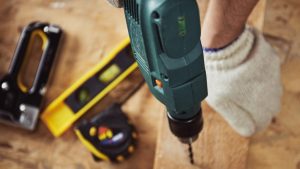How much book learning do skilled tradespeople need to do their jobs? Do they need any at all?
The skilled trades are more intellectually demanding than many people realize, says Faith Dempster, director of workforce development at the BC Construction Association.
“For example, various math skills are needed in the trades,” says Dempster. “They range from simple arithmetic, such as adding and subtracting fractions, to more complex concepts, such as trigonometry, which is used by welders and metal fabricators. Electricians need to understand and to be able to apply some of the principles of physics.”
Dempster says many apprentices are surprised to find out how much mathematics they need.
“A lot of them enter their apprenticeships deficient in math,” she says. “It would help if, when they learn math in high school, they learn with practical examples of how the theory they’re learning can be applied in the real world.”
Scott Comfort, president of Seagate Mass Timber in Surrey, B.C., says “a huge asset, regardless of your role,” includes basic and advanced geometry, trigonometry, a clear understanding of order of operations, balanced equations and some basic accounting.
Tradespeople also need to be able to reason and to think in abstractions.
“They need to be able to assess what is in front of them so they can look for commonalities and disparities,” he says. “This applies to everything from nailing down a sub-floor to working safely in hazardous environments.”
Comfort says every year the in-class part of the carpentry apprenticeship has a math component, with most of the focus on volume calculations of concrete and stairs, and rafter calculations for roof framing.
“Almost everything can be calculated online these days but understanding how we arrive at these numbers is a critical part of understanding how we build and sequence work,” says Comfort.
Tradespeople should also have a big picture understanding of how the construction process works, because it will help them with decision-making on the job.
“For instance, if a carpenter knows that schedule is more important than budget, they would know to stay at work for two hours of overtime in order to finish a task instead of knocking off after eight hours and starting again the next day.”
Tamara Pongracz, department head of trades access at British Columbia Institute of Technology (BCIT), says although tradespeople need to understand both the theory and application of math, traditional educational methods don’t always make the connection between the two.
“The secondary school program has failed to provide the math skills tradespeople need to succeed,” says Pongracz. “Many of the apprentices going through their training are not adequately prepared and need to be taught how to apply math in their jobs. It’s not good enough to just be ‘good with your hands.’”
To help students connect theory and practice, BCIT has partnered with SkillPlan, a Burnaby, B.C.-based not-for-profit creator of workplace development programming, to create an online assessment and teaching platform.
Lovey Sidhu, director of workforce development at SkillPlan, says the Build Your Skills Online Learning Hub is a centralized learning and support centre.
Sidhu says it has the math, science and trade-specific reading and document-use skills that apprentices need in order to enter and succeed in their apprenticeships.
“Apprentices use Build Your Skills to work through trades-specific examples and gain knowledge via a series of videos, lessons with step-by-step instructions and real-life trade applications of math and science concepts, as well as practice questions and quizzes,” says Sidhu.
She says the online learning system has been active for several years with thousands of users signing up every year across Canada to access Build Your Skills’ various tools, supports and resources.
SkillPlan serves 14 international building trades unions and their affiliated contractors and technical training providers across Canada.
Sidhu says the organization provides consulting services to the construction industry, focusing on pinpointing gaps in foundational skills, addressing learning challenges and delivering industry-specific training programs.
“Build Your Skills is integrated in every province across Canada,” says Sidhu. “We are working with Canada’s Building Trade Unions and each provincial building trade council across Canada to integrate the learning tool through their construction trades hubs.”
The trades hubs are where people can learn about the various opportunities in unionized construction, find out more about the trades and connect with local unions.







Recent Comments